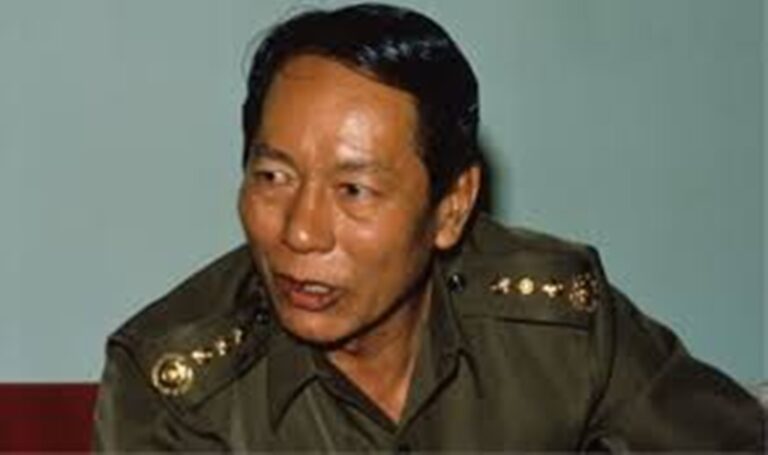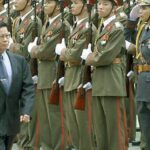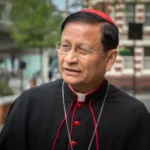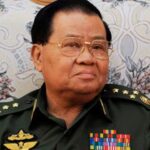
General Saw Maung
(Burmese: စော မောင်; 5 December 1928 – 24 July 1997) was the Tatmadaw’s eighth Commander-in-Chief and the first to hold the newly created rank of “Senior General.” As Chairman of the State Law and Order Restoration Council (SLORC) and prime minister (1988-1992), he presided over the army takeover that ended Burma’s brief experiment with civilian rule in the wake of the 8888 Uprising.Wikipedia
Early life and military rise
Born in Mandalay during the British colonial period, Saw Maung joined the army in 1945, three years before independence. He received his officer’s commission in 1952 and spent the next three decades in counter-insurgency commands along the Thai border. Promotion was steady: brigadier-general (1976), adjutant-general (1981), and Commander-in-Chief (November 1985).Wikipedia
The 1988 coup and formation of SLORC
On 18 September 1988, as nationwide protests paralyzed the country, the Tatmadaw seized power. Acting with the blessing of retired dictator Ne Win, Saw Maung announced the suspension of the socialist constitution and the creation of a 19-member junta, the SLORC, with himself as chairman.The Irrawaddy
Rule, reform pledges and growing isolation
Saw Maung held the portfolios of defence, foreign affairs and prime minister, and—unusually for a junta leader—promised a quick return to barracks after multiparty elections. In March 1990 he was elevated to “Senior General,” a four-star rank invented for him. But within the SLORC he was increasingly regarded as too conciliatory toward Aung San Suu Kyi and the pro-democracy movement.WikipediaWikipedia
1990 election crisis and removal
The National League for Democracy won a landslide in the May 1990 polls. Saw Maung was reportedly willing to honor the result, but hard-liners—led by his deputy, General Than Shwe—refused. Amid rumors of a nervous breakdown and religious visions, he was relieved of all posts on 23 April 1992 “for health reasons” and placed in quiet seclusion.Wikipedia
Later years and death
Saw Maung lived out his final years in Yangon under military guard. He died of a heart attack on 24 July 1997, aged 68. He was survived by his wife Daw Aye Yee (d. 2004) and their three children.Wikipedia
Legacy
Although often overshadowed by the longer-ruling Than Shwe, Saw Maung remains a pivotal transitional figure. His short-lived pledge to respect the 1990 election is still cited by Myanmar’s pro-democracy activists, while hard-liners remember him as a cautionary tale of wavering resolve. The rank of Senior General—created for him—has endured and is today the hallmark of Myanmar’s top commander.





